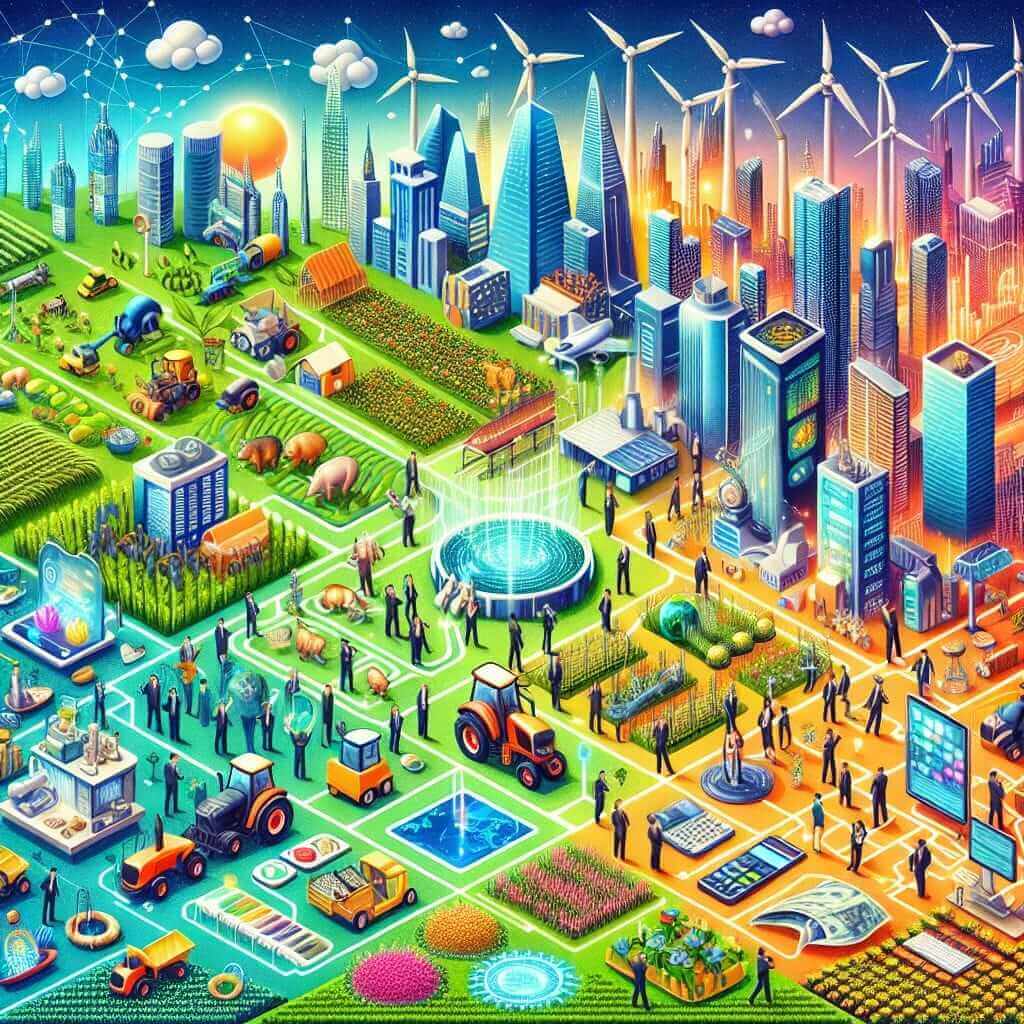The concepts of “economic diversification and stability” frequently appear in IELTS Writing Task 2, reflecting their global significance. These topics are particularly relevant to essays that explore economic growth, development, and the impact of globalization. Understanding these concepts and how to discuss them effectively is crucial for achieving a high band score.
Examining past IELTS essays reveals a recurring theme of economic diversification as a strategy for nations to achieve long-term stability. This trend is likely to continue, given the increasing interconnectedness of the global economy and the inherent vulnerabilities of relying on a single industry or resource.
Here are some authentic IELTS essay questions that have appeared in previous tests:
- Some people believe that countries should try to become self-sufficient in food production. Others argue that this is unrealistic in the modern world. Discuss both views and give your own opinion.
- Many countries rely on tourism as a key source of income. Discuss the advantages and disadvantages of this and give your own opinion.
Sample Essay: Tourism Reliance and Economic Diversification
Many countries rely on tourism as a key source of income. Discuss the advantages and disadvantages of this and give your own opinion.
Analysis of the Question
This question requires you to analyze both sides of tourism’s impact on an economy. You must present a balanced discussion, considering the economic benefits and drawbacks of relying heavily on tourism. Finally, you need to provide a clear and reasoned personal opinion.
Model Essay
Tourism has become a cornerstone of many national economies, generating substantial revenue and employment opportunities. While this reliance on tourism offers undeniable advantages, it also presents potential risks and disadvantages that necessitate careful consideration.
On the one hand, tourism can be a powerful engine for economic growth. It injects foreign currency into local economies, boosting national income and contributing to a favorable balance of payments. This influx of capital can be used to fund infrastructure projects, improve public services, and support other sectors of the economy. Moreover, tourism creates diverse employment opportunities, ranging from hotel staff and tour guides to artisans and restaurant workers. This job creation can be particularly beneficial in rural areas or developing countries where alternative employment options may be limited.
However, over-dependence on tourism can expose countries to significant economic vulnerability. Natural disasters, pandemics, or global economic downturns can severely impact tourist arrivals, leading to a sharp decline in revenue and widespread job losses. For instance, the recent COVID-19 pandemic had a devastating impact on tourism-dependent economies worldwide. Additionally, a narrow focus on tourism can hinder the development of other industries, potentially leading to economic stagnation in the long run. This lack of economic diversification can make it challenging for countries to adapt to changing global market conditions or to recover from economic shocks.
In conclusion, while tourism can be a valuable contributor to economic growth and development, it is crucial for countries to avoid excessive reliance on this single sector. A more sustainable approach involves diversifying the economy by investing in other industries and promoting balanced growth. This strategy will enhance resilience to external shocks and pave the way for long-term economic stability.
Word Count: 275

Writing Tips
- Structure: Follow a clear and logical structure, ensuring a balanced discussion of both advantages and disadvantages.
- Vocabulary: Utilize a wide range of vocabulary related to economics, tourism, and development. Avoid repetition and aim for precision in your word choice.
- Grammar: Pay close attention to grammar accuracy, particularly subject-verb agreement, tenses, and article usage.
- Examples: Support your arguments with relevant examples to illustrate your points effectively.
Vocabulary Builder
- Diversification (noun /daɪˌvɜːsɪfɪˈkeɪʃən/): The process of making something more diverse or varied.
- Resilience (noun /rɪˈzɪliəns/): The ability to recover quickly from difficulties; toughness.
- Vulnerability (noun /ˌvʌlnərəˈbɪləti/): The quality or state of being exposed to the possibility of being attacked or harmed.
- Stagnation (noun /stæɡˈneɪʃən/): A state of inactivity or lack of growth.
- Balance of payments (noun): A record of all economic transactions between the residents of a country and the rest of the world.
- Influx (noun /ˈɪnflʌks/): An arrival or entry of large numbers of people or things.
Conclusion
Mastering the vocabulary and concepts related to “economic diversification and stability” will undoubtedly strengthen your IELTS Writing Task 2 performance. By analyzing model essays and familiarizing yourself with common themes, you’ll be better equipped to articulate your ideas effectively and achieve your desired band score. Remember to practice writing essays under timed conditions to build your confidence and improve your time management skills.